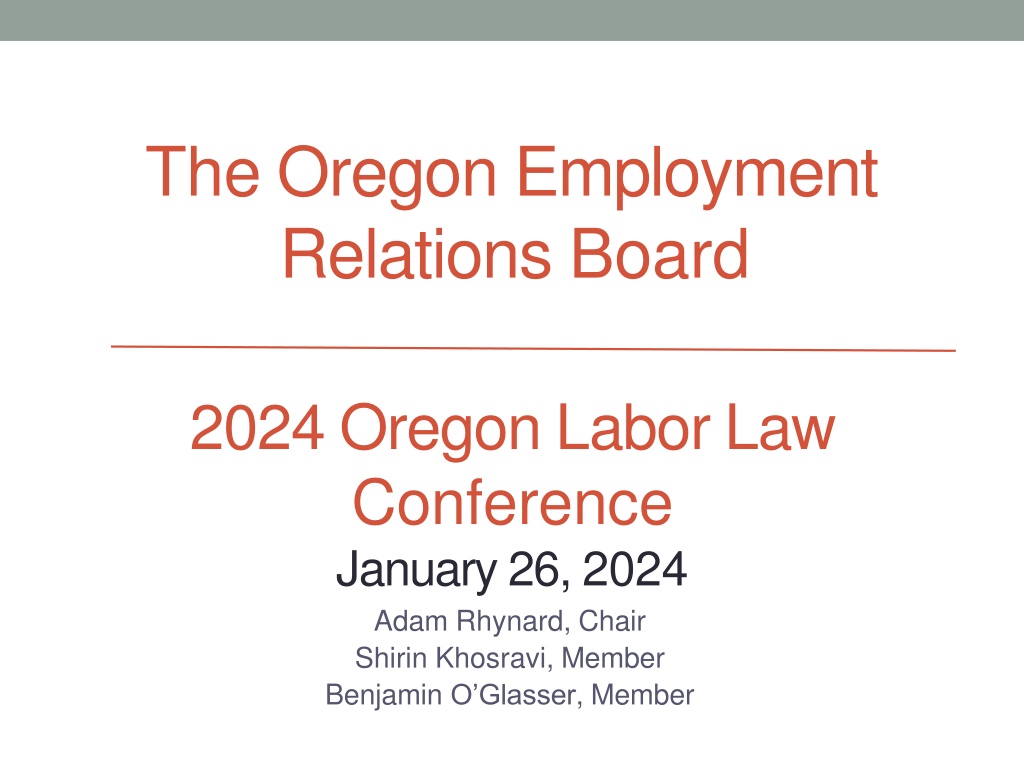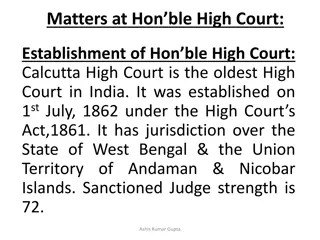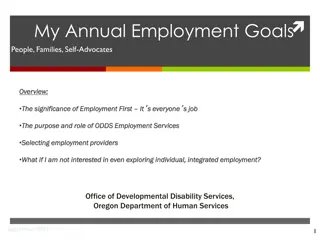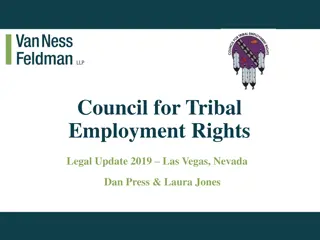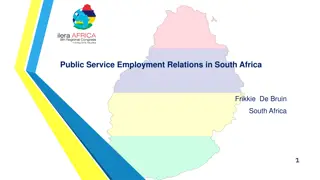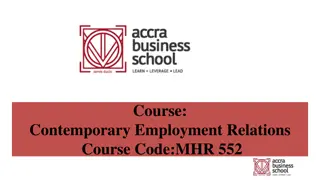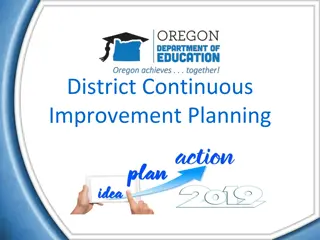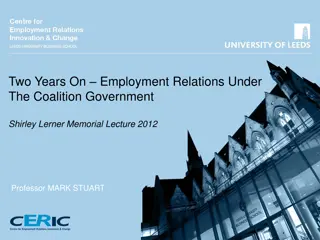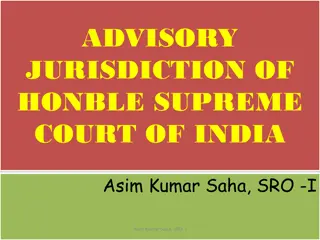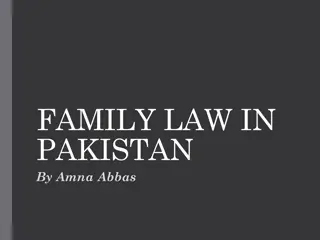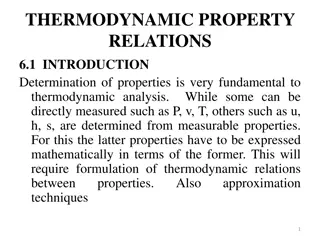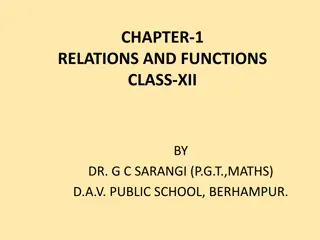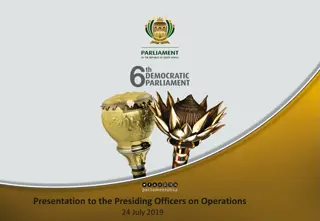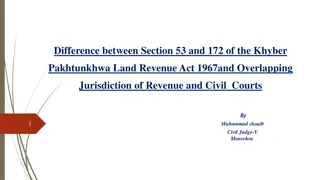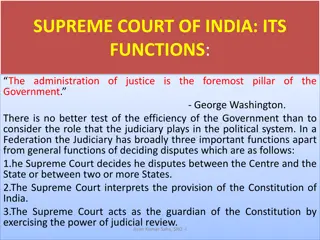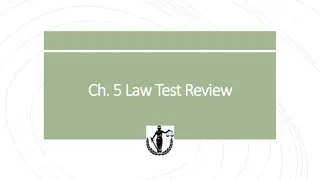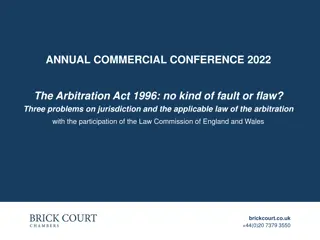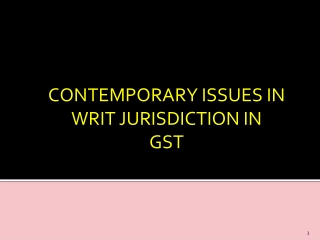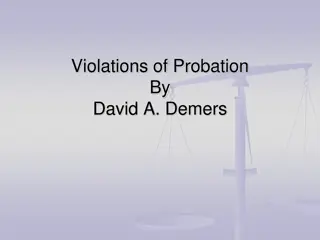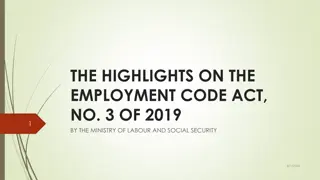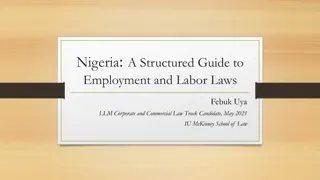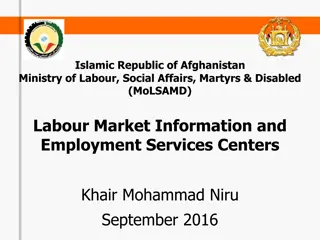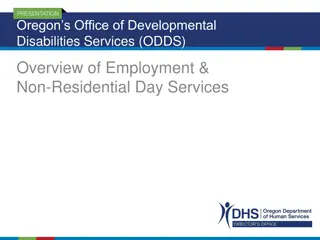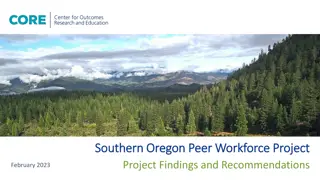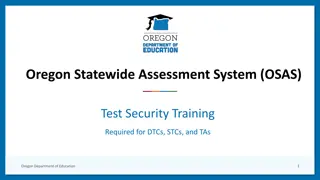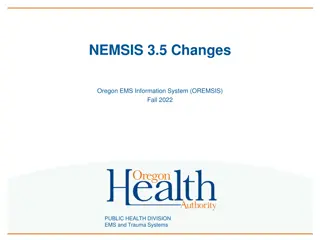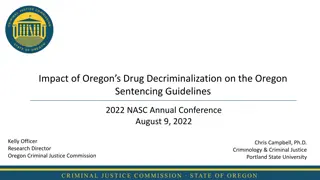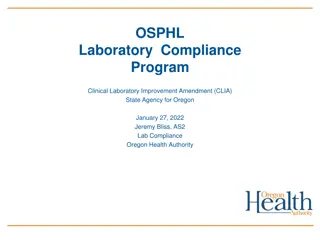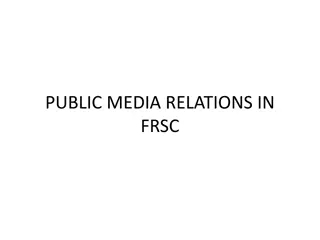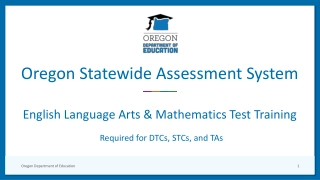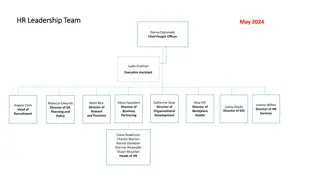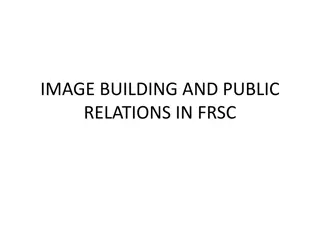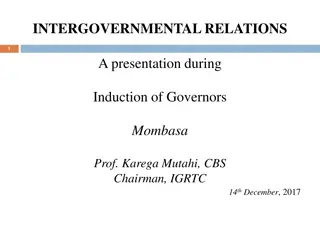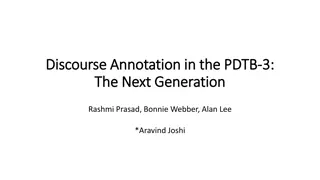Overview of Oregon Employment Relations Board (ERB) and Its Jurisdiction
The Oregon Employment Relations Board (ERB) plays a crucial role in regulating labor relations in Oregon, overseeing collective bargaining and resolving disputes in both the public and private sectors. Composed of three board members representing labor, management, and the public, the ERB handles issues such as unfair labor practices, union representation disputes, and appeals from state personnel actions. Their primary duties include determining bargaining units, conducting elections, providing mediation services, and issuing rulings in contested cases.
Download Presentation

Please find below an Image/Link to download the presentation.
The content on the website is provided AS IS for your information and personal use only. It may not be sold, licensed, or shared on other websites without obtaining consent from the author. Download presentation by click this link. If you encounter any issues during the download, it is possible that the publisher has removed the file from their server.
E N D
Presentation Transcript
The Oregon Employment Relations Board 2024 Oregon Labor Law Conference January 26, 2024 Adam Rhynard, Chair Shirin Khosravi, Member Benjamin O Glasser, Member
Overview of the Oregon Employment Relations Board What is the Employment Relations Board? fondly referred to as ERB (pronounced like herb) or the EE-ARE-BEE Composition? Jurisdiction? Duties?
Structure and Composition of ERB Three Board Members, appointed by the Governor with the approval of the State Senate Representatives of labor, management, and the public Administrative Law Judges who hear unfair labor practice complaints and representational issues The State Conciliator and additional Mediators Staff
Mediation and Conciliation Services Mediation of Collective Bargaining Disputes Grievance and ULP Mediation Interest-based Bargaining Training and Facilitation Labor-Management Committee Training Arbitrator List
Jurisdiction of ERB Oregon public sector Public Employee Collective Bargaining Act - (PECBA) (ORS 243.650 through 243.806), which governs collective bargaining in state and local government. State Personnel Relations Law - (SPRL) (ORS Chapter 240), which creates appeal rights for certain unrepresented state employees regarding some disciplinary and workplace actions. The Private Employee Collective Bargaining Act (ORS 662.405 through 662.455, and 663.005 through 663.295), which governs collective bargaining for certain private-sector employees who are not subject to the jurisdiction of the National Labor Relations Board.
Primary Duties of ERB To determine appropriate bargaining units and conduct card-checks or elections regarding collective bargaining for employees To resolve disputes over union representation and collective bargaining negotiations, including providing mediation and conciliation services To issue declaratory rulings and orders in contested cases, including: Unfair labor practice cases Claims by union members against unions (duty of fair representation claims) Appeals from state personnel actions
Public v. Private Sector PECBA is modeled on the National Labor Relations Act (NLRA), but with Key Differences: No Prosecutorial Arm any injured party may file a complaint and receive a hearing if there is a disputed issue of fact or law. Incorporates mandatory mediation with the agency as part of the bargaining dispute resolution process. Most employees can strike, but those who cannot have access to interest arbitration to resolve bargaining disputes. Card check may be used in representation/unit clarification petitions for currently unrepresented employees. Janus decision means no more fair share agreements/fair share employees. Limitation on use of public funds regarding union organizing. Detailed statutory list of mandatory/permissive subjects of bargaining.
What types of conduct constitute a ULP? The Public Employee Collective Bargaining Act (PECBA) defines certain conduct as an unfair labor practice. Public Employer ULPs ORS 243.672(1) Labor organization ULPs ORS 243.672(2)
ORS 243.672 (1)(a): The in and because of prohibitions. ORS 243.672(1)(a) prohibits a public employer from taking actions that interfere with, restrain or coerce employees in or because of the exercise of rights guaranteed [under the PECBA]. What is protected activity? Striking, strike planning, union organizing, displaying union insignia, filing a grievance, etc.
ORS 243.672 (1)(b): Employer domination of, interference with, or assistance to the union It is an unfair labor practice for an employer to [d]ominate, interfere with or assist in the formation, existence or administration of any employee organization. To violate subsection (1)(b), an employer s action must amount to actual domination, interference, or assistance. A complaining union must prove that the employer s actions impeded or impaired the labor organization in performing its duties as exclusive representative.
ORS 243.672 (1)(c): Encouraging or discouraging union membership It is an unfair labor practice for a public employer or its designated representative to [d]iscriminate in regard to hiring, tenure or any terms or condition of employment for the purpose of encouraging or discouraging membership in an employee organization. ERB examines the reasons for the employer s conduct. A violation will be found only if the employer acted with a discriminatory motive, intending to undermine employees exercise of [rights protected by the Public Employee Collective Bargaining Act].
ORS 243.672 (1)(d) (k) It is also a ULP for a public employer to: (d) Discharge or otherwise discriminate against an employee because the employee has signed or filed an affidavit, petition or complaint or has given information or testimony in an ERB proceeding. (e) Refuse to bargain collectively in good faith with the exclusive representative. (f) Refuse or fail to comply with any provision of the PECBA. (g) Violate the provisions of any written contract with respect to employment relations including an agreement to arbitrate or to accept the terms of an arbitration award, where previously the parties have agreed to accept arbitration awards as final and binding upon them. (h) Refuse to reduce an agreement, reached as a result of collective bargaining, to writing and sign the resulting contract. (i) Violate ORS 243.670(2) (which prohibits the use of public funds to oppose or support a union organizing campaign, or to take certain actions against employees who participate in hearings under this section). (j) Attempt to influence an employee to resign from or decline to obtain membership in a labor organization. (k) Encourage an employee to revoke an authorization for the deductions described under ORS 243.806.
ORS 243.672(2) Labor Organization ULPs A labor organization may not: interfere with, restrain, or coerce any employees in the exercise of any statutory right. refuse to collectively bargain in good faith. refuse or fail to comply with any PECBA provision. violate the provision of any written contract with respect to employment relations. refuse to reduce to writing and sign a collectively-bargained agreement. engage in unconventional strike activity. picket at the residence or business premises of any member of the governing body of a public employer.
Processing of ULPs Complaint filed with the Board. ALJ investigates the complaint to determine if there should be a hearing. The ALJ sets a hearing date, conducts a hearing, and issues a Recommended Order. If any party disagrees with the Recommended Order, they can file objections with the Board. Board issues a Final Order that can be appealed to appellate courts.
Mediation of ULPs The parties may participate in voluntary mediation with the State Conciliation Service. If both parties agree to participate in mediation, the ALJ will notify the State Conciliator, who will assign a mediator and schedule the matter for mediation. Benefits of settlement: The parties negotiate their own resolution tailored to the needs of all involved: employer, union, employees, and the public; The parties avoid the cost of hearing, post-hearing objections, and possible appeal to the Oregon Court of Appeals; The parties avoid further uncertainty, workplace disruption, and inconvenience to witnesses and participants.
Representation Petitions Petitions for Representation New units typically certified by card check verifying majority support Unless at least 30% of employees petition for election in lieu of card check HB 2573 (2023) establishes requirements for petitions for representation that are submitted as electronic record Petition to add Unrepresented Employees to an Existing Bargaining Unit Other Petitions for Unit Change/Clarification E.g., disputes over supervisory status, or to move employees from one unit to another Decertification Petitions
Takeaways from Recent Board Decisions Clackamas County Employees Association v. Clackamas County, Case No. UP-018-22 (June 29, 2023) o The Board held that the County violated ORS 243.672(1)(e) by 1) failing to adequately respond to the Association s information request related to the County s pay equity analysis and 2) when it unilaterally increased the wages of at least one bargaining unit member, before the County completed its PECBA bargaining obligations with the Association. o The Board found that the Association needed the requested information - the underlying data of the County s pay equity analysis and the identities/names of potentially affected Association-represented participate in bargaining with the County over proposed changes in employee pay, and ultimately concluded that the County failed to show a legitimate or substantial confidentiality interest in either the underlying data or the identities of the potentially affected employees. employees - to adequately o The Board also found that the County committed a per se violation of ORS 243.672(1)(e) when it unilaterally increased the wages of at least one bargaining unit member before the County completed its PECBA bargaining obligations.
Takeaways from Recent Board Decisions Klamath Falls Association of Classified Employees v. Klamath Falls City Schools, Case No. UP-039-21 (October 16, 2023) o This case arose from multiple disputes between the School District and the Association regarding appropriate use of the School District s email system. o The Board concluded that the School District violated ORS 243.672(1)(a) and (c), but not (1)(b), by threatening a represented employee s job security because she alerted the Association about a potential CBA violation. The Board declined to find a (1)(b) violation of interference with KFACE s ability to serve as the exclusive representative. The Board ordered a civil penalty related to this charge as it was a flagrant violation of (1)(a) and (1)(c). o The Board also held that the Association Vice President, in her capacity as a KFACE officer, had the statutory right to send an email communicating union endorsements in a school board election. The email was sent from a personal computer during break time. The Board concluded that the District s discipline of the VP interfered with the administration ORS 243.672(1)(b). The Board further held that because the email was protected activity, the District s discipline constituted a (1)(a) violation. of KFACE in violation of
Takeaways from Recent Board Decisions American Federation of State, County, and Municipal Employees, Child Care Providers Together v. State of Oregon, Department of Administrative Services, Case No. UP-009-22 (November 15, 2023) o The Union alleged that a prominent Union leader had state subsidy payments suspended based on her Union activity. The Union alleged the ULP complaint was timely despite the suspension occurring outside of the statute of limitations period (180 days) because the Union discovered evidence of a violation of the PECBA within the limitations period. o The Board concluded that the complaint was untimely because the Union filed a detailed grievance nine months prior to filing the ULP complaint, alleging that Respondent suspended the Union leader because of her Union activity. The grievance was sufficient to establish that the Union knew or reasonably should have known that a violation of PECBA occurred. o Because the complaint was untimely, the Board did not reach the merits of the case and dismissed the complaint.
Resources ERB Website http://www.oregon.gov/erb/pages/index.aspx ERB s PECBA Unfair Labor Practice Q&A: https://www.oregon.gov/erb/Documents/Q-A_ULPGuide.pdf Oregon State Bar Treatise: Labor and Employment Law: Public Sector University of Oregon s Labor Education and Research Center s Monograph Series http://lerc.uoregon.edu/research/monograph-series/ PECBA Digest ERB s library in Salem is open to the public, and it includes the PECBA Digest and other labor law resources. ERB Orders are public records; request form is available here: https://www.oregon.gov/erb/Pages/PublicRecord.aspx SOLL database of ERB final orders Oregon Employment Relations Board Final Orders - State of Oregon Law Library Digital Collection (oclc.org)
